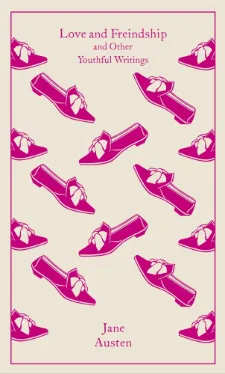
Should we ask ourselves “What would Jane Austen do?” (Cover image: Penguin Clothbound Classics)
Should indie authors keep their self-published books available for sale forever? As more writers see self-publishing as a long-haul career, this question will become relevant to a growing number of authorpreneurs. ALLi author members share their views in this composite post taken from a recent online forum discussion.
Generally speaking, trade-published authors who are contracted to a publishing company will find their older books automatically delisted if they're not selling profitably, often quite soon after publication. This is because maintaining a book in the traditional publishing environment requires significant investment in inventory and warehousing costs.
Thanks to digital publishing technology, indie authors have much more choice. Once we've uploaded a book to our distributor of choice – CreateSpace, IngramSpark, KDP, Kobo, iBooks, etc – we can keep it before the market forever, if we want to. Our files will simply stay available in the ether until a reader orders a copy, whether as an ebook or as a print-on-demand paper copy. It costs us nothing, or next to nothing, to keep all our books available.
But does that mean we should? We put that question to our members via the ALLi Facebook Forum (a members-only privilege) to gauge their views. For the sake of confidentiality, we've anonymised their responses.
4 Reasons to Keep All Your Books on Sale
- readers enjoy following the development of a favourite author as a writer by reading from their very earliest work (true fans may be less critical than the author)
- readers feel aggrieved if they can't access all their favourite author's work, once they've read all their currently available books
- the thriving secondhand market online (Amazon Marketplace/eBay) means readers are likely to be able to buy used copies in any case, and true fans will pay good prices for them – so why leave the profit to others?
- each book is a potential income stream forever, and sales may go up as well as down
4 Reasons to Suppress Earlier Work
- you are likely to have grown, developed and perhaps also diversified as a writer and feel your earlier works no longer represent the writer you have become – you may see them as your apprenticeship best kept under wraps
- you've acquired a better editing and production team and your early work does not match the presentation quality of your latest output
- your judgment and priorities have changed and you no longer feel those books represent you as a person
- the purpose served by writing one of your earlier books no longer stands, e.g. a childhood memoir provided catharsis at the time that is no longer needed
4 Alternative Treatments for your Backlist
Of course, the situation is not black-and-white. There are ways to steer a middle course, e.g.
- temporarily unpublish your earlier work to re-edit and re-issue to meet your current standards
- withdraw your work from sale but repurpose the work in a different way e.g. use as a mailing list magnet
- change the way you market older work that is not selling e.g. reduce the price to the minimum allowed – one member reported this tactic yielded thousands of new sales
- repackage it as juvenilia so that readers can differentiate it from your mature work
OVER TO YOU How have you managed your own backlist? Do you have advice to share with other indie authors on making the most of your back catalogue? We'd love to know!
 With thanks to the following ALLi members who contributed their views to this discussion in our closed forum: Adam Croft, John Doppler, Jean Gill, Tiara King, Kassandra Lamb, Maggie McVay Lynch, Fenella Miller, Roz Morris, Elise Noble, Natasha Orme, David Penny, Ann Richardson, Glenn Salter, JJ Toner
With thanks to the following ALLi members who contributed their views to this discussion in our closed forum: Adam Croft, John Doppler, Jean Gill, Tiara King, Kassandra Lamb, Maggie McVay Lynch, Fenella Miller, Roz Morris, Elise Noble, Natasha Orme, David Penny, Ann Richardson, Glenn Salter, JJ Toner
Like to join ALLi to have access to its closed Facebook forum? Click here for more information.
How should #selfpub #authors manage their backlist? 12 suggestions here: Share on XRELATED POSTS FROM THE ALLi ARCHIVE





Yes, good summary. I took interest in reading the points. I think the alternative treatments were especially helpful.
I think there is an argument for keeping early work on sale if you haven’t yet published enough new work, even if it is tempting to retract it all or focus exclusively on bringing it to new standard.
You want the early work there like a comfort blanket, a raison d’etre, even as you gradually, over time, pull it towards the back of your platform. No?
And, how do you repackage as juvenilia?
Very succinctly summarized. Thank you!